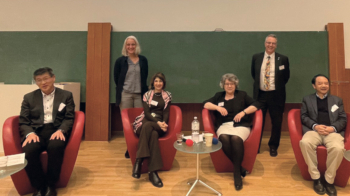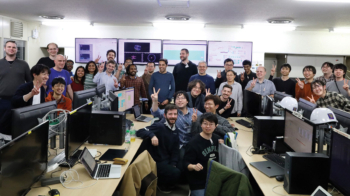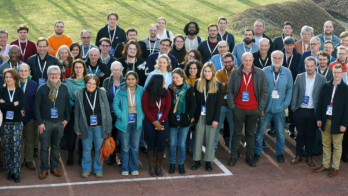The development of more efficient and faster optical detectors is the subject of a prestigious Ý2 million Research Technology & Development contract awarded by the EC to Sussex University, together with two UK companies, Photek Ltd and Electron Tubes, the Laser Centrum (Hanover), the Autonoma University (Madrid), CIEMAT (Spain) and Novara Technology (Italy).
The project, known as “Impecable” (standing for Improved Photon Efficient Cathodes with Applications in Biological Luminescence), will fund the development of more efficient and faster optical detectors by the newly formed consortium, leading to their subsequent production by Photek and Electron Tubes. Existing industrial and research uses for photon counting, detection and imaging are already immense, but the particular thrust of these new developments should greatly increase their value for medical diagnostics, with medical, biological and new sensor applications.
The new concepts have arisen partly as a result of friendly collaborations over the last ten years between Photek and Peter Townsend at Sussex University: Townsend constructed a new standard for spectral analysis of thermoluminescence based on the Photek photon counting cameras. That equipment has not only advanced basic research into new optical and photonic materials, but is also being applied to problems of mineralogy and geological dating.
Although the Sussex system is still well regarded, there is now a major need to improve the sensitivity for long wavelengths (near infra-red) signals and to have much faster sensors. The work at Sussex led to a patent for a development that can, potentially, give much greater sensitivity and has already established a new technique to speed up the response time of Photek detectors into the sub-nanosecond range. The new grant will take this research further and faster with the aim of giving European dominance to both the subject and any resulting products.
The partners have already begun to interact – the Laser Centrum in Hanover is collaborating with Photek on another EC-funded project (Femto) on laser machining. Electron Tubes and Photek have had discussions in the past, and Sussex-UAM -CIEMAT have also worked on joint projects over many years.
The collaboration between Sussex University and Electron Tubes began more recently when the latter was launched independently of Thorn/EMI. Electron Tubes is a leading European manufacturer of photomultipliers and detector modules that detect light down to single photons. Its role will be the development of new high efficiency photocathode layers and the fundamental measurements on the cathodes to be used in this project.
The detection of low light levels is also critical to a wide variety of industrial and scientific instrumentation. Industrial applications range from the measurement of steel thickness as it is rolled from the furnace through to the identification of oil-bearing rock immediately behind the drill bit as an oil well is formed. Scientific applications range from the detection of solar neutrinos deep underground to astronomical observations of distant stars. The target processes for the new high-efficiency photocathodes will be in the very challenging area of the detection of light emitted during biological processes or from luminescence which distinguishes between healthy and imperfect cells.
Among the applications foreseen for this technology is a new technique for the early diagnosis and subsequent monitoring of Alzheimer’s disease, and luminescence analysis for a variety of types of cancer. Demonstrations of such possibilities are planned within the three-year programme but routine applications will take longer.
Contact Ian Ferguson at sales@photek.co.uk for further information.





